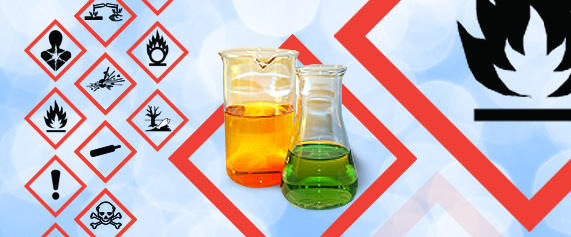CHEMICAL LEGISLATION

Chemical legislation, in particular in the European Union, is one of the most complicated matters in the world. The reason why the regulatory and legislative framework is so complex is, because it requires not only a detailed understanding about legal matters, but also a scientific background to understand the complex matter of chemistry and material science.
Another reason for the huge complexity is, that the topic has grown historically and has been addressed on multiple levels of legislative bodies but also by scientific committess on international level.
In particular with the REACH regulation the burden of proof has been reversed. In the past some bureaucrats that did not have any clue about chemistry or toxicity were sitting in their overpaid chairs of “public service” to tell companies what they are not supposed to do and everything else was “legal” and permitted on the market. The liabilities for companies were explicitly limited to the “invested capital” and the law designed to protect big corporations from damage reimbursement claims.
While in a free society any damages resulting from chemical use could easily be brought to a court, the old way of government legislation prevented this because it was explicitly “legal” to bring whatever stuff on the market, unless some clueless bureaucraft KNEW that it was harmful and made a law about it. But where should the guy even know it from, before the damages were pretty obvious already?
This is why the regulator replaced pest with cholera and simply reversed the burden of proof on the shoulders of the company. Now the company is fully liable for everything they bring on the market and the burden of proof lies fully with the entity that brings the products to the market. While the idea as such makes perfectly sense, the implementation has not been followed according to the principles of of potential damage reimbursments in private civilian law, the implementation was done in a way that companies simply have to submit huge amount of documents to regulatory bodies and nobody reads them. The regulatory bodies just focus on the fact that you paid their bill. (in REACH only 5% of the dossiers have a compliance check)
Also the companies themselves now want to be 200% on the safe side and are now sending around all sort of “certificates” about their products. This usually helps to create a ton of paperwork but does NOT increase the safety of the products, since the common sense approach has been dismissed entirely.
Here is an overview of just a few relevant legislative frameworks that might be relevant for your compliance:
ATEX
Bedarfsgegenstand gemäss LFBG (Deutschland)
Dodd-Frank Act (Konfliktmineralien) und CMRT
EU-Medizinprodukte-Verordnung 2017/745/EU (MDR)
Lebensmittelrecht
PAK
PIC (Prior informed consent) Verordnung
Produktsicherheitsgesetz GPSGV
Proposition 65
REACH
RoHS
Stockholmer Übereinkommen über persistente organische Schadstoffe (POP-Konvention)
WEEE-Richtlinie
I can help you to focus on what is really important, to help you to set up lean and efficient processes for the risk communication, get your dossiers up fast and compliant and also have best practices at hand how to handle the vast amoutn of incoming documents that your company has to process.
Book an appointment
Book directly an appointment with me. The initial “Get to know me and your problem” Session is completely free of charge.
READ MORE

